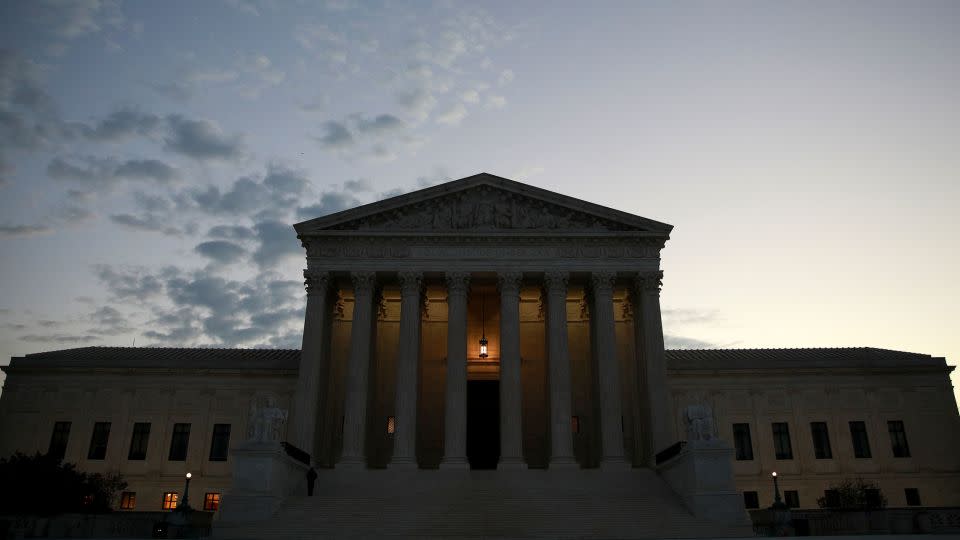Alabama’s congressional map dilutes the power of Black voters, advocates again tell Supreme Court

Alabama’s congressional map dilutes the power of Black voters, voting rights advocates told the Supreme Court on Tuesday in a filing that accuses the state of “unabashedly” defying an opinion the justices issued just three months ago.
Challengers to the map, represented by the NAACP Legal Defense & Educational Fund, the ACLU and others, asked the justices to reject a pending bid by the state to freeze a lower court order that blocks the map while the appeals process plays out.
Alabama, through its secretary of state, “is not entitled to a stay to implement a congressional map that openly defies the clear ruling of the district court and this Court,” they wrote in their Tuesday response.
The lawyers likened the actions of the state to “our unfortunate history of States resisting civil rights remedies through laws and practices which, though neutral on their face, serve to maintain the status quo.”
The case has been closely watched because critics of the map drawn by Alabama lawmakers say the state’s action represents open defiance of federal court orders that they provide more political representation for the state’s Black residents.
In addition, the outcome of this redistricting battle – along with separate, pending litigation in states such as Georgia and Florida – could determine the partisan balance of the US House of Representatives after next year’s elections. Republicans currently hold a razor-thin majority in the chamber.
Back in June, in a case concerning an earlier map, a divided Supreme Court affirmed a lower court opinion ordering Alabama – which has a 27% Black population – to include a second majority-Black district or “something quite close to it” to its seven-seat congressional map.
The 5-4 opinion was penned by Chief Justice John Roberts, who drew the votes of fellow conservative Justice Brett Kavanaugh, as well as the court’s three liberal justices.
But when Alabama produced its new map in July, it came under immediate legal challenge because the state, once again, declined to create a second majority-Black district.
The same three-judge panel, which had overseen the case before it reached the Supreme Court the first time, wrote that it was “disturbed” by Alabama’s actions in the case and invalidated the map, ordering a special master to draft new lines.
“We are deeply troubled that the State enacted a map that the State readily admits does not provide the remedy we said federal law requires,” wrote the judges, two of whom were appointed by former President Donald Trump.
The three-judge panel declined to put its ruling on hold pending appeal.
Now Alabama is asking the justices to step in again as it argues that its 2023 map passes legal muster even if it doesn’t include a second majority-Black district.
In a filing with the Supreme Court on September 11, Alabama argued it could distinguish the new map from the plan that was invalidated last term.
Alabama Attorney General Steve Marshall, a Republican, argued that the new map kept communities of interest intact, unifying the state’s so-called Black Belt, named for its fertile black soil.
“The 2023 plan departed from existing district lines to unify the Black Belt, it split the minimum number of county lines necessary to equalize population among districts and it made the map significantly more compact through changes to each district,” Marshall said.
He said the lower court had erred in requiring that a second majority-Black district be drawn.
“The court gutted the State’s discretion to apply traditional redistricting principles in 2023, by expressly refusing to defer to them when they didn’t yield the ‘right’ racial results,” Marshall said.
Marshall asked for the court to act quickly by issuing a stay by October 1, so that 2024 election preparations could begin.
For more CNN news and newsletters create an account at CNN.com

